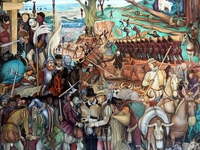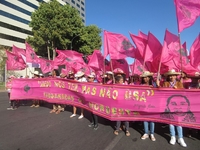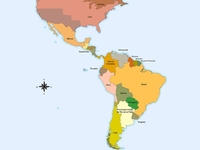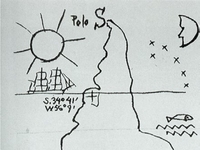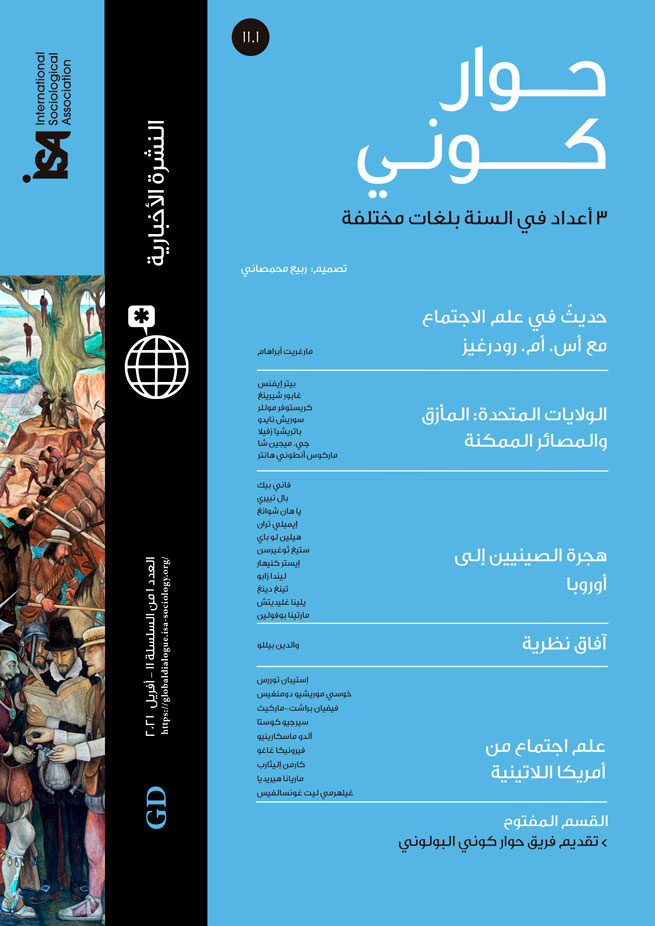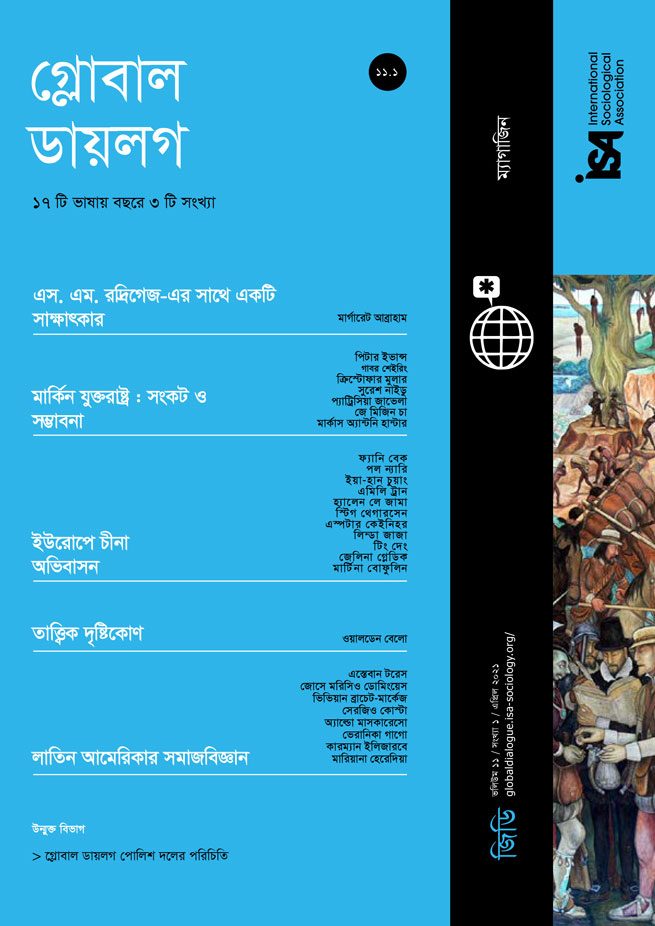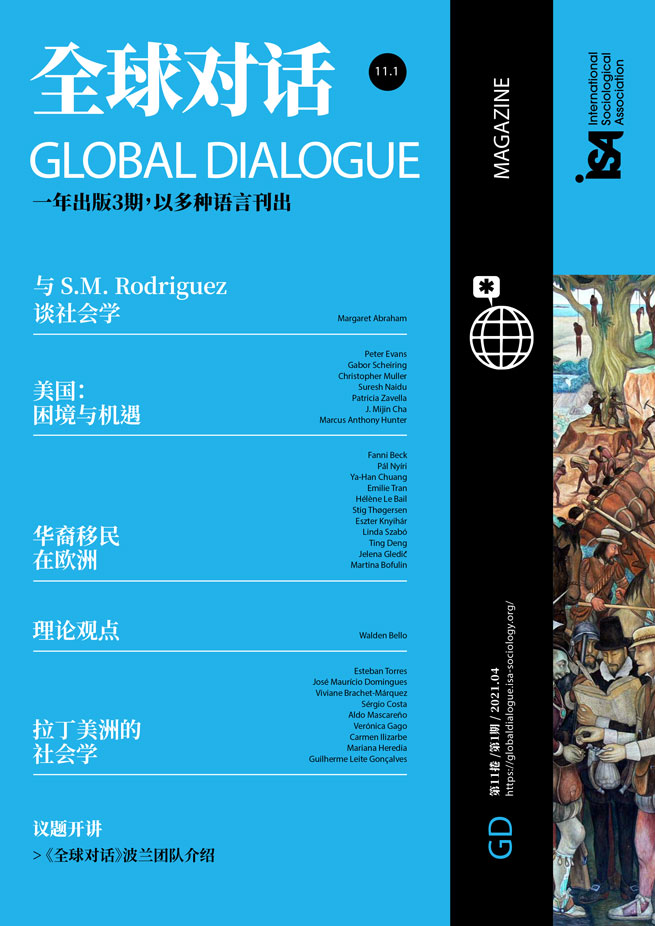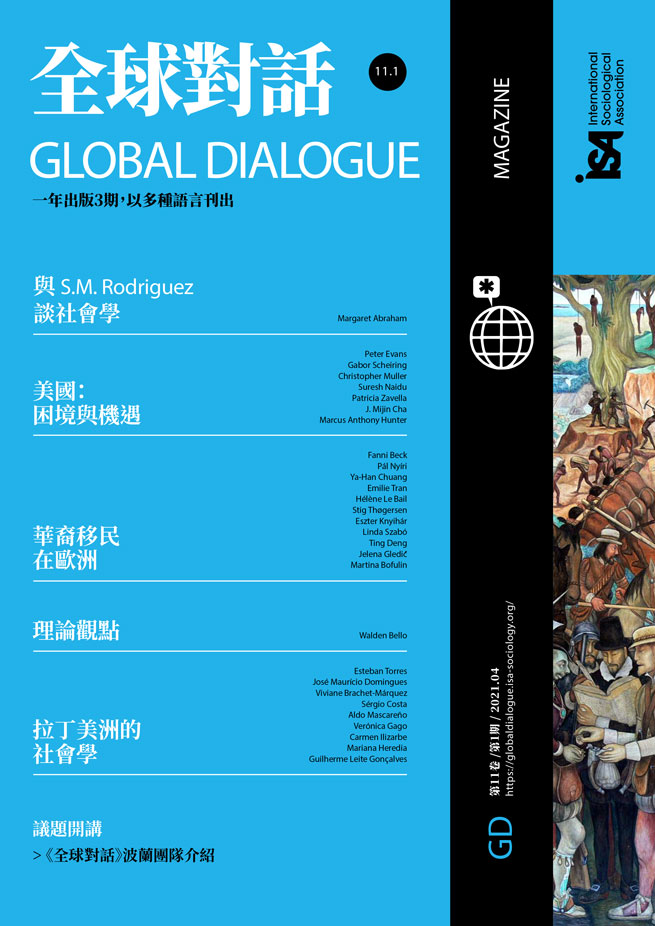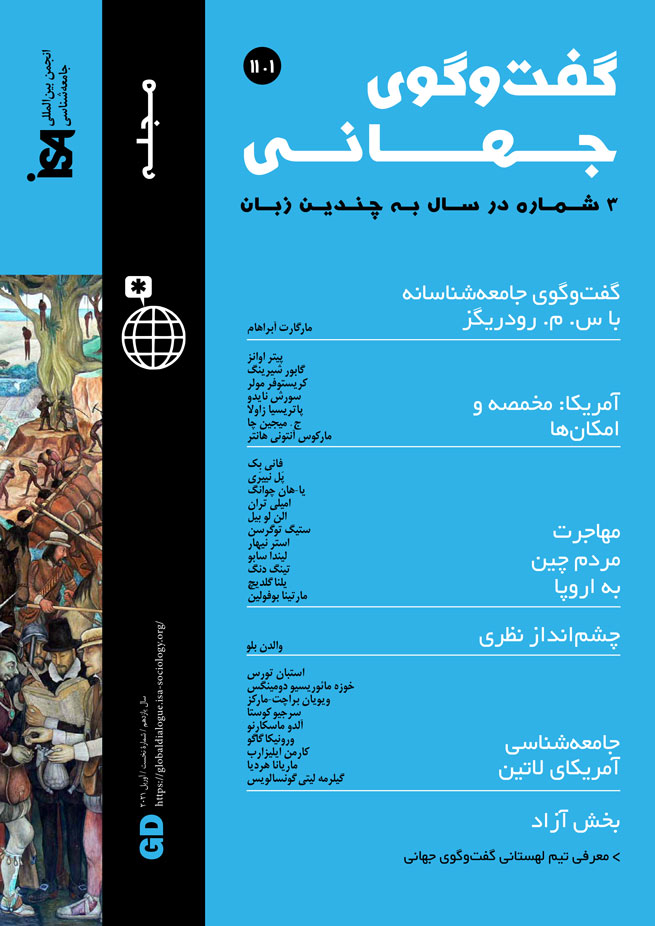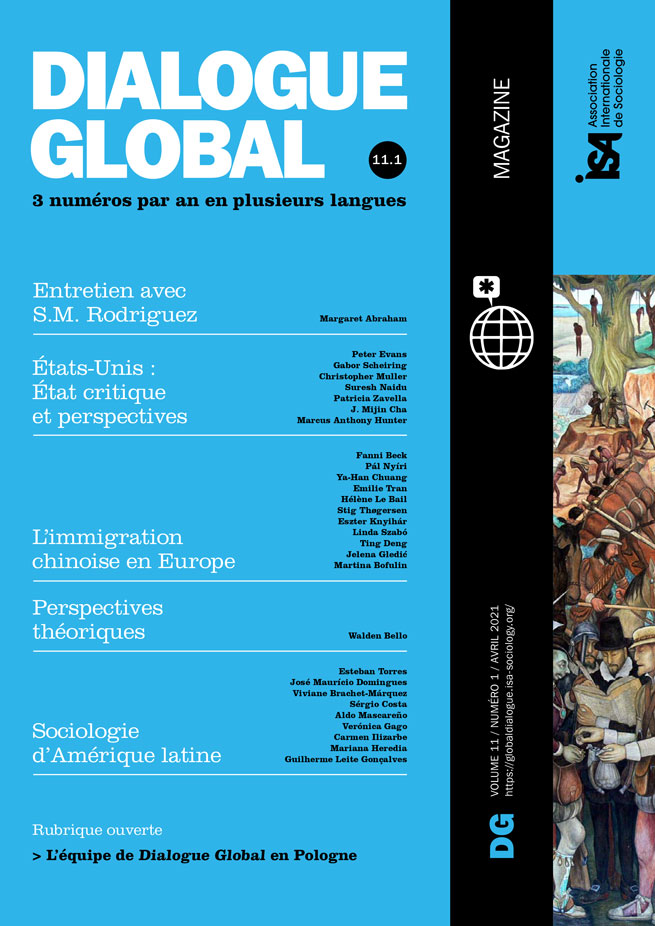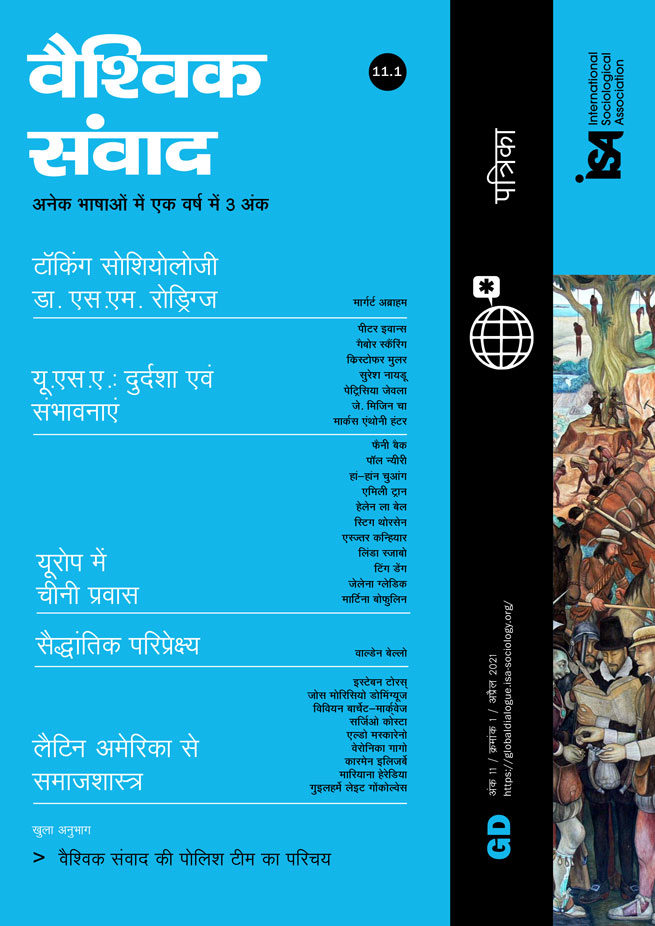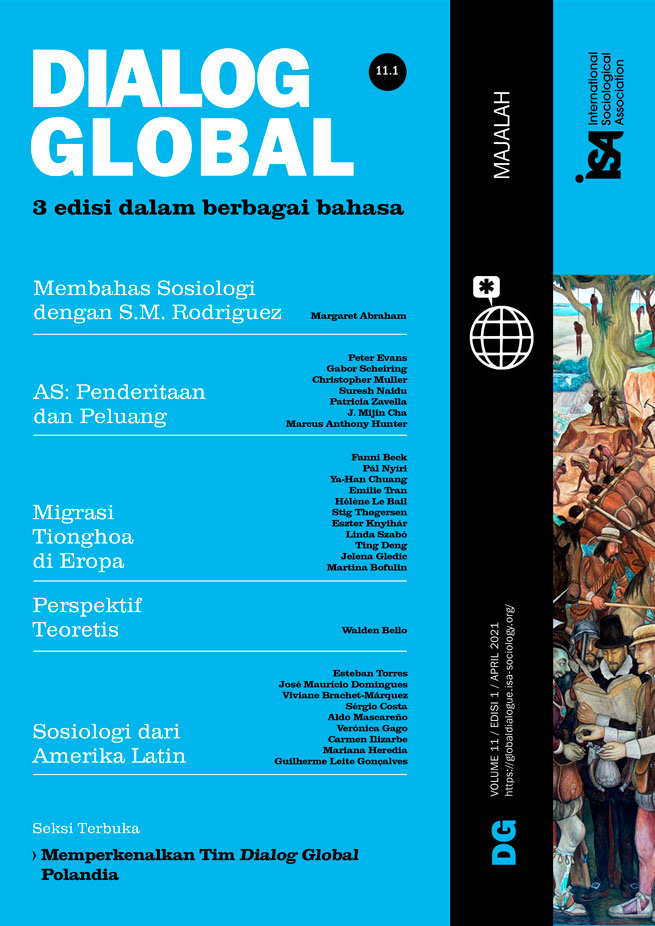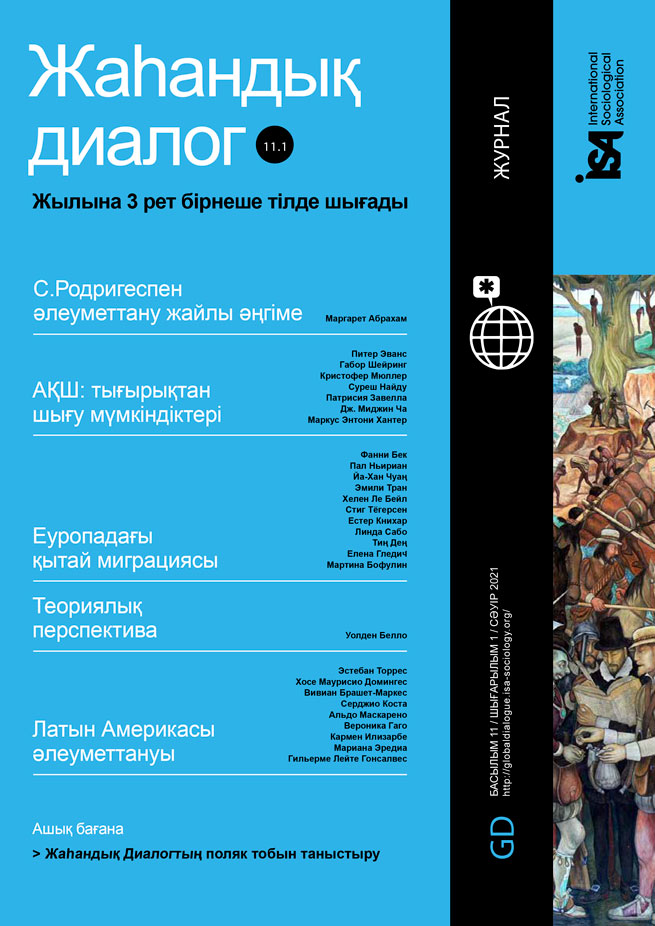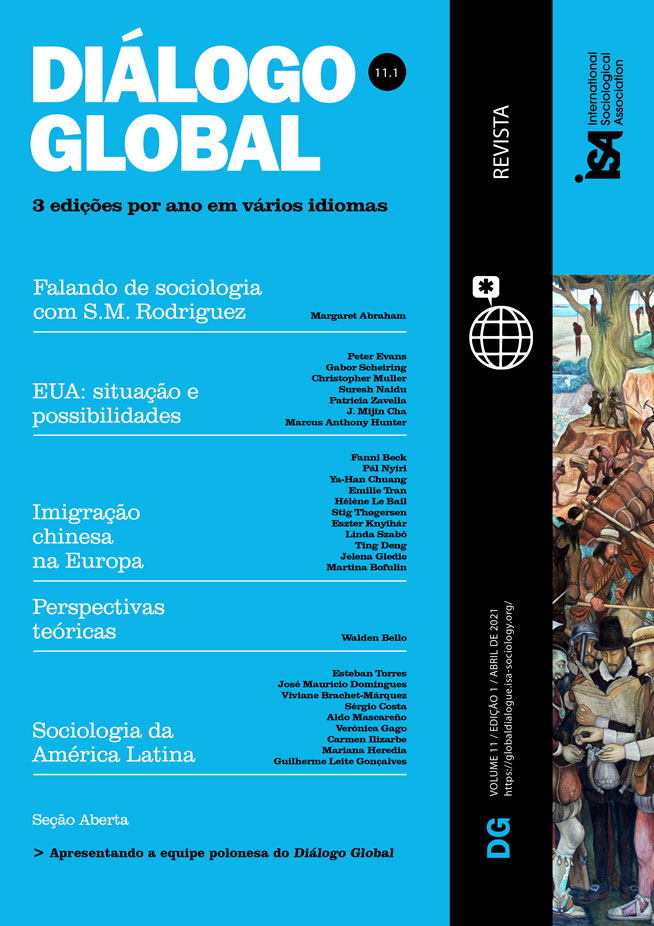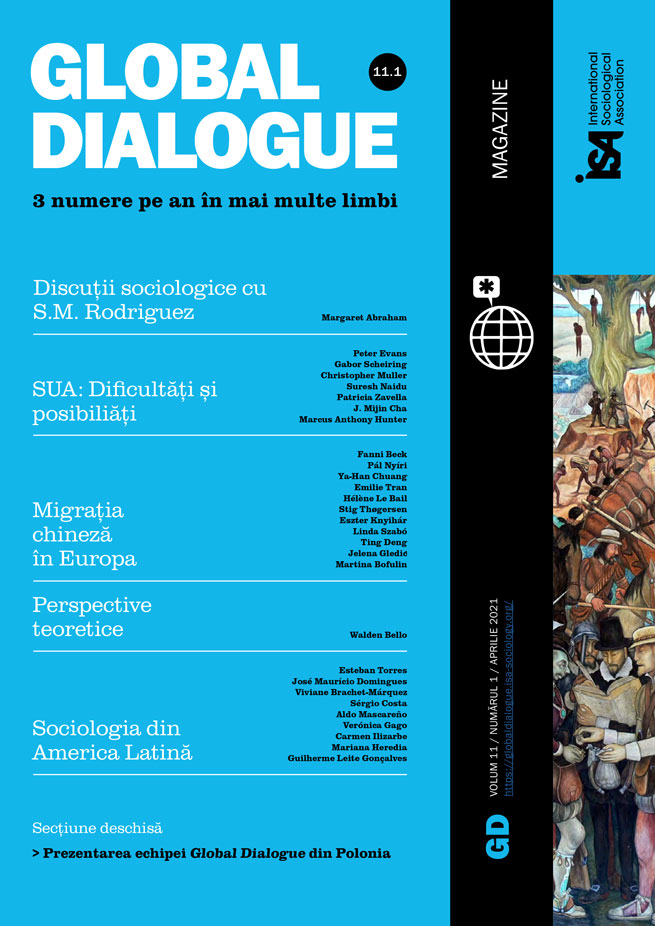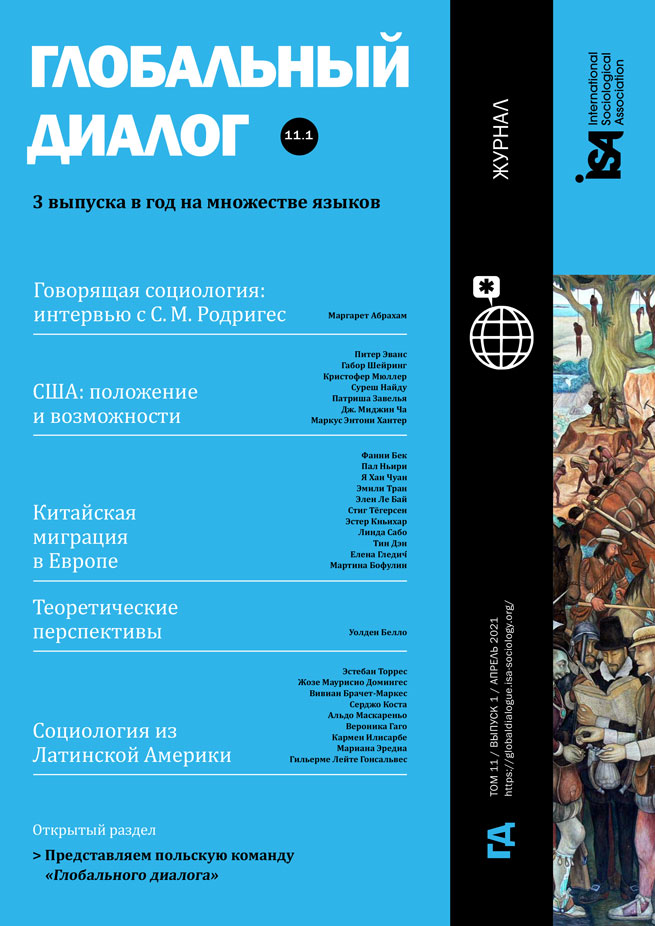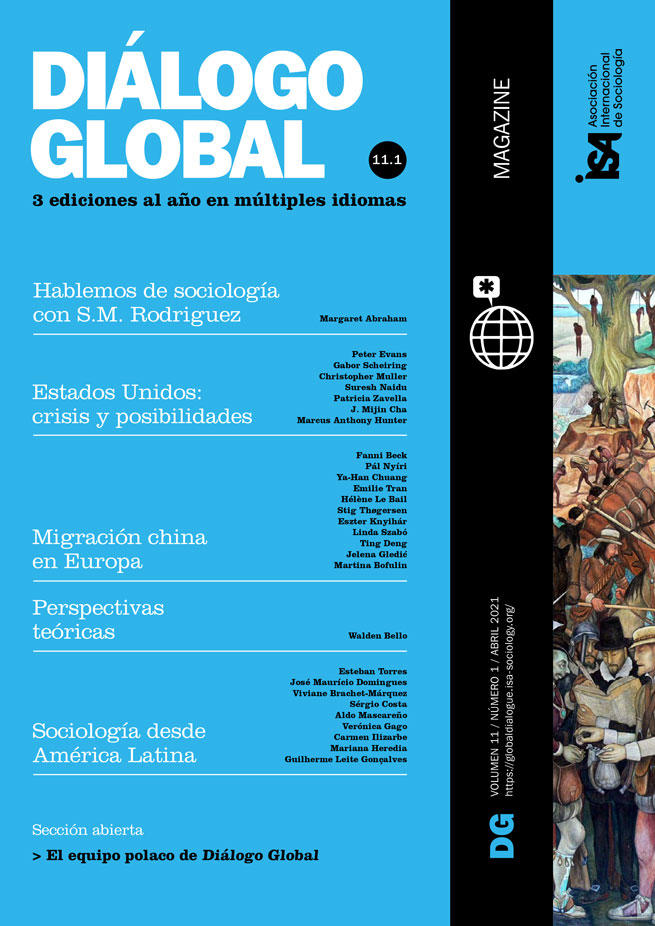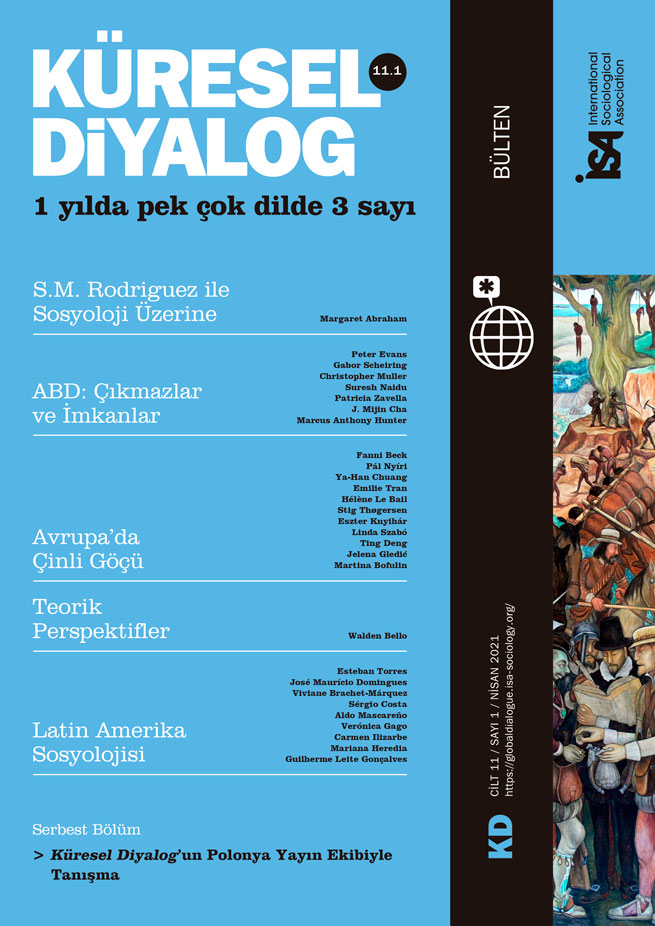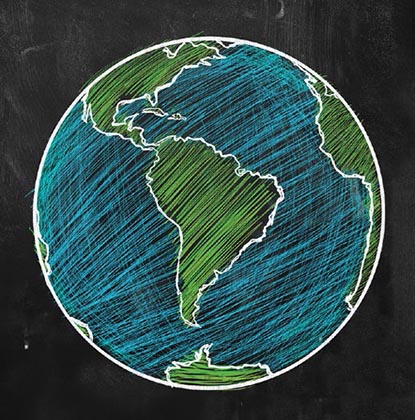Major social transformations in world society since the beginning of the twenty-first century are exhausting the two paradigms that governed the development of sociology from its origins until today: the modern paradigm and the anti-modern postmodern paradigm. This issue calls for a paradigm shift. My proposal introduces a new, scientifically minded, postmodern program called the “world paradigm” (WP; paradigma mundialista, or PM, in Spanish).[1] This intellectual galaxy carries a new idea of world society, world social change, and world sociology. I will review some of those elements here.
Mundialization in the wake of COVID-19
The key changes taking place in Latin American sociology are a reaction to two types of simultaneous crises: (1) the aggravated crisis of neoliberalism, and (2) the budding crisis of the idea of society as conceived by sociology and historical societies themselves. The first crisis has intensified due to the worldwide process of state recentralization; the second, from an unprecedented process of mental and intellectual mundialization. As observed from Latin America, the two crises, as well as the state and mundialization processes mentioned, have deepened due to the effects of the global financial crisis of 2008, the last wave of bottom-up regional integration in Latin America (2003-2015), and the current COVID-19 pandemic. If the crisis of neoliberalism negatively impacts the anti-modern postmodern paradigm and positively impacts the modern paradigm, the crisis of the idea of society negatively impacts both, although more decisively the modern paradigm. Given the novelty it presents and its potential for social determination, I will focus on the latter.
The COVID-19 pandemic is the main event producing a hyper-accelerated process of mental and intellectual mundialization for the first time in the history of humanity. This process consists of at least three central ingredients: (i) a preliminary idea of a unified world society that integrates the totality of the national, regional, and global spheres; (ii) a record of the existence of inequalities between nations and regions; (iii) an intuition or corroboration that the world society is not only modern or “in the process of modernization.”
The process of mundialization mentioned above displays the increased exhaustion of the modern and postmodern anti-modern paradigms. Both start from the premise, made common knowledge, that sociology’s framework of reference is the national society. Not just any idea of a national society, but a self-referential and restrictive vision that – with its ideological variants – has been spread from the Global North since the first industrial revolution. In its most refined versions, this idea of a national society has been wrapped in a penetrating and reflective universalism that facilitated its assimilation en masse by academia in peripheral countries to valorize their historical societies. What lies in both modern and postmodern paradigms are different types of methodological, epistemic, and theoretical nationalisms. The vast majority of current Western theories of globalization in world sociology are within this restrictive framework.
The growing inadequacy of both paradigms, the modern and the postmodern anti-modern, is evident not only in the two crises mentioned. It has been accentuated by a historical process of restructuration of sociology in Latin America and, in part, of world sociology, that began in the 1980s. This restructuration is associated with a material disconnection between sociological and extra-academic political practices and an intellectual disconnection between the scientific, critical, and political engines of sociological practice. This decoupling process has deepened the scientific decomposition and political impotence of world sociology while diminishing the intellectual resources available to political actors.
The scientific project of the world paradigm
In the face of this situation, progressive and leftist sociologies need to recuperate their modern core and, at the same time, transcend it towards a new world paradigm (WP). The WP introduces a conception of sociology as a localized and multi-localized socio-scientific force, oriented towards the transformation of world society. This paradigm demands a new postmodern scientific project, a new reconnection model between the scientific, the critical, and the political nuclei of sociological theory and research, and a new mediation device between sociological and political practice. I will dwell on the WP’s first component: the scientific project, which unfolds from the dialectic between a principle of mundialization, a principle of localization, and a principle of historicization.[2] The principle of mundialization assumes that the first substratum of society is worldly and not national. It is a revolutionary premise insofar as it inverts the nuclear spatial equation of the modern and postmodern anti-modern paradigms. The mundialization principle makes it possible to outline an idea of world society as a superior unit that occurs in the interaction between three systemic levels: (i) the relations between national, regional, and global spheres, conceived as inseparable and irreducible spheres; (ii) center-periphery relations; and (iii) the relationship between the modern and the non-modern.
The principle of localization requires the recognition of localization as a point of reference for world society. For the WP, world society is an unequal social formation, simultaneously localized and multi-localized. Each localization point is a singular direct and indirect condensation of the asymmetric interaction between the three spheres mentioned above. In the same way that world society is not the product of a single localization, a complete vision of said social formation and world social change cannot be either. That is why the movements and programs of structural transformation that we need to build demand creating a world sociology destined to bring together in dialogue the theories of world society produced from all historical localizations of our planet.
[1] For a comprehensive development of this proposal, see Torres, E. (2021) La gran transformación de la sociología [The Great Transformation of Sociology]. Córdoba-Buenos Aires: FCS-CLACSO. Manuscript submitted for publication.
[2] For space reasons, and because they are the most disruptive elements, we will refer exclusively to the first two principles.
Esteban Torres, Universidad Nacional de Córdoba-CONICET, Argentina <esteban.torres@unc.edu.ar>
